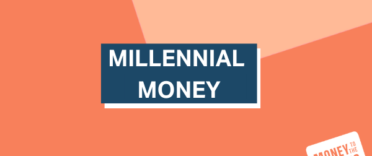In this Millennial Money episode, I explain how to budget for beginners, from working out your monthly income to categorising your spending and how budgeting apps such as Snoop* and Moneyhub* can help with this. Having a budget allows you to get on top of your finances and work towards your financial goals as you are easily able to see where your money is going each month. Below I share 5 steps to help you set up a budget.
How to set up a budget
1. Work out your income
Your income could be your salary, any second job, or any freelance work that you do. Essentially, any and all of the money that you receive for work you do. Write it all down and add your income together so you have your total earnings each month.
2. Write down your expenses
Writing down your expenses is a really important part because your expenses will make up the main part of your budget. Your expenses are considered regular monthly outgoings, such as your mortgage or rent, council tax, tv license, utility bills, phone bill, gym subscription and any other regular payments that should be included. If you're having trouble working out how much comes out of your bank account each month, there are a variety of apps out there that can help you to categorise your spending, such as Moneyhub* and Snoop*. Head to our list of the best budgeting apps in the UK for more ideas. Alternatively, download our free budgeting spreadsheet to get started.
3. Separate your money
Separate your money so you can see precisely where it is going each month and control your spending. Consider having a separate account for your monthly bills and expenses, and your disposable income. This is where digital banks such as Starling Bank come in handy, with many offering tools to help you categorise your extra spending, separate your money into separate 'pots' and track what your money is being spent on. This way, you can see precisely how much of your disposable income is being saved and how much is being spent, and even separate the two into individual pots. Head to our list of the best app-only banks in the UK for more information.
4. Subtract your expenses from your income
Once you've written down your expenses (taking care to round up to the nearest pound), add them all up together to find the total amount each month that they come to, then subtract this figure from your monthly income. This will help you to work out how much of your money is being spent on regular expenses and how much you have left over as disposable income to either put into savings or spend on luxuries. An easy way to do this is with the free MTTM budgeting spreadsheet.
TIP: When adding up your expenses, try to round up the figure to the nearest pound. E.g. if your phone bill is £44.50, note it down as £45.00 exactly. As if an unexpected cost crops up, you’ll have already overstated your expenditure for the month, and you should have some leeway that could prevent you from slipping into an overdraft.
5. Decide what to do with your disposable income
Once you’ve worked out how much money you have left each month as disposable income, you’ll need to decide how you’re going to spend it - or save it. It’s always recommended to make sure you have an emergency fund to fall back on if times unexpectedly get tough, so do try to build up a sufficient amount in savings to ensure you would be able to support yourself. You can check out our article on how to build an emergency fund and look at our up-to-date list of the best regular savings accounts to decide where to put your extra money. You can also bookmark our regularly updated best savings accounts article for the latest savings rates. You could also consider using a savings app, we round-up the best available savings apps in the UK here.
If a link has an * beside it this means that it is an affiliated link. If you go via the link Money to the Masses may receive a small fee which helps keep Money to the Masses free to use. But as you can clearly see this has in no way influenced this independent and balanced review of the product. The following link can be used if you do not wish to help Money to the Masses or take advantage of any exclusive offers - Moneyhub, Snoop





